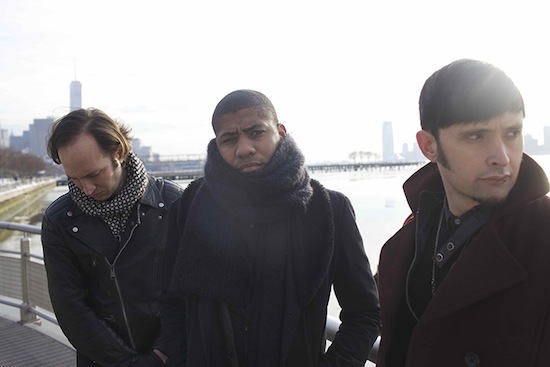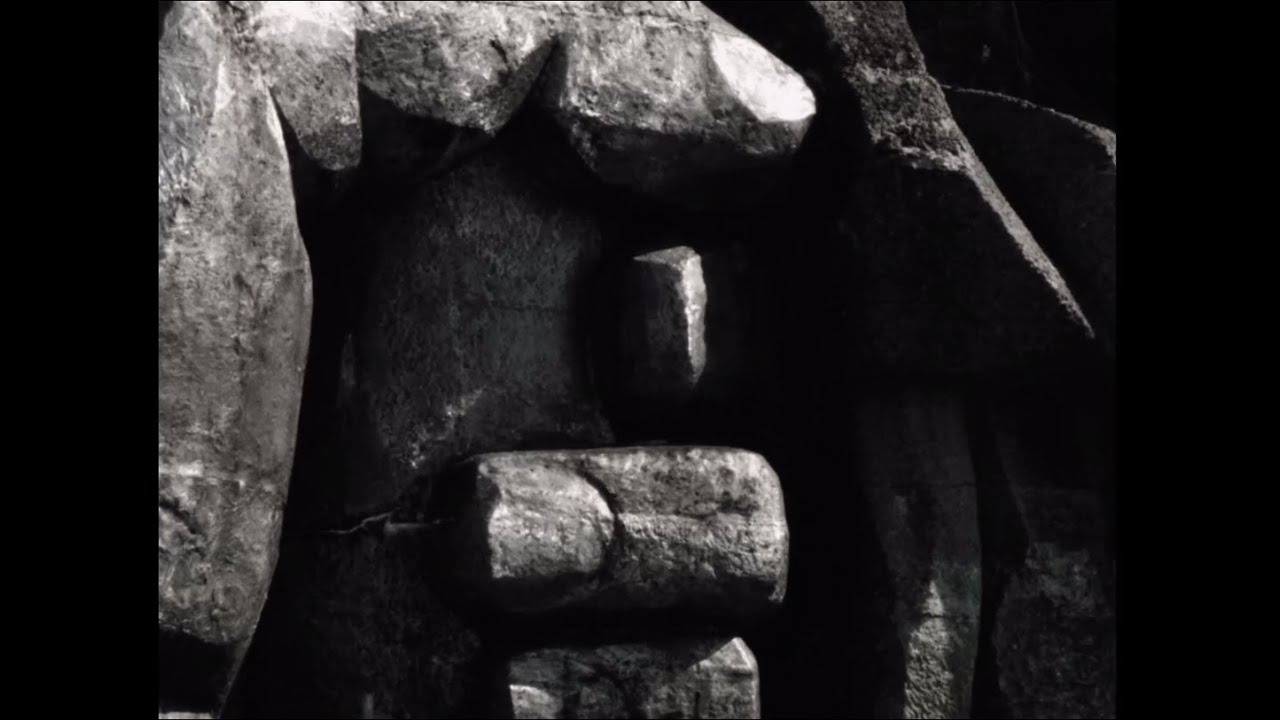Algiers’ video for ‘Irony. Utility. Pretext.’ is as good an entry point as any to what the Atlanta trio are about. The music is a collision of dread-laden industrial atmospherics, pointed synth-pop chords, EBM drum machines and Franklin James Fisher’s impassioned vocals, bolstered by a surging gospel choir roiling in the background. They intercut footage of themselves in the dilapidated remains of some Soviet edifice – occasionally dancing, both alone and together, in a nicely dissonant nod to what you might expect from a pop music promo – with various quotations from Louis Antoine de Saint-Just, Karl Marx and the 1968 Paris demonstrations, among others.
It’s an odd mix, but a brilliant one, framing the group’s heavily politicised consciousness – a look at their website, collecting together essays and articles alongside music and video is well recommended – within an immediately arresting musical approach. It has the feel of something considered, but constantly in a state of further refining, which makes sense coming from a group as thoughtful and engaged as they are. Speaking to the Quietus’ Luke Turner yesterday, they explain their band name as referring “to a contested space, where violence, racism, resistance and religion commingle”, cite “the overriding sense of doom amid the jubilation” of gospel music as an influence and make no bones about chastising their home country: “Institutionalised violence against people of colour is more American than apple pie.”
Just as their identity is in a continual process of taking shape, so is their live sound. Tonight, at Dalston’s Power Lunches, they don’t quite hit the same highs as on their upcoming debut album, but when they come close, it’s a formidable proposition. Crammed to the point of hair follicle-in-nostril intimacy, the tiny sweatbox venue’s soundsystem doesn’t quite do justice to the dystopic tolling bell that rings over the drum machine on ‘Old Girl’, while ‘Games’ lament for the deliberate ignorance of injustice happily employed by the church’s “smattering of grey suits and polite smiles” feels a little thin on the ground. It’s when their ambition and execution coalesce, though, that Algiers feel most vital, as they do on the closing performance of ‘Blood’. The Home Counties tones of a BBC travel programme narrator ring out, observing the fact that the terracotta roofs of Algiers hide a bloody past, before a second sample starts up, discussing exactly what the band’s Ryan Mahan told the Quietus about the culture industry in America: “[W]hen it comes to African-American music, there is a creeping exploitation and fetishisation of black authenticity”. The loping bass takes on blunt-force brutality, laid over a deathly sound bed of a solitary tambourine’s metallic rinse and a rhythmic whipcrack. Fisher’s vocals feel like the sole trace of the human, the mechanised music tearing forward now, rendering a whole that’s ridden by Biblical darkness.
On a basic level, Algiers are another affront – as if one was needed – to those hand-wringing that music is just treading over the same old ground. They seem to pen Throbbing Gristle, Nitzer Ebb and The Haxan Cloak in-between gospel music and early hip-hop, a molten, as-yet not fully-formed sonic assault that’s only, you hope, going to assume more potency as they hone it further. Crucially, though, they wear their convictions on their sleeves, and not lightly. Their music, videos and website invite us to consider our own engagement with political and social issues. If that sounds dry, it shouldn’t; Algiers aren’t dealing in some didactic self-righteousness, rather they’re raging against apathy and the means through which they’re doing this bristles with a livewire invention. Tonight, there are flashes of something, which, honed and on a bigger stage, could be truly incendiary.



